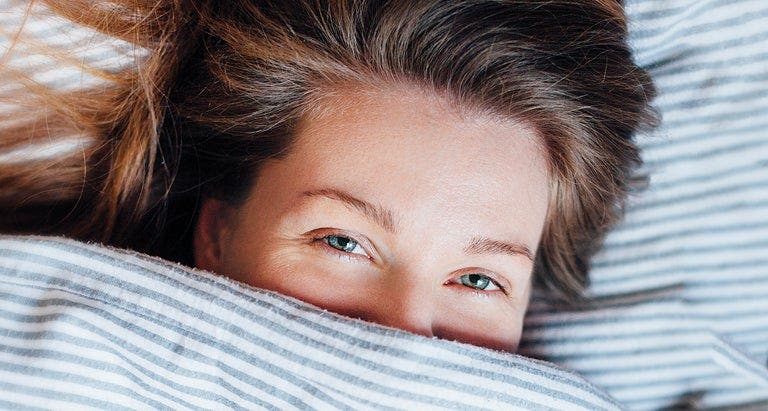Have a Good Night!


Mindful eating. Moving more. Those are the behaviours for losing weight and keeping it off, right? But researchers are finding more and more links between getting too few ZZZs and carrying too many lbs, as you learned in your Weekly. Although the reasons are not fully understood, there seems to be a connection between sleep loss and hormonal changes that affect appetite and satiety. So, how much attention do you pay to your sleep quantity and quality? For many of us, sleep gets short shrift—but it’s not an indulgence! Taking care of yourself in this elemental way can have a powerful payoff.
A good night’s sleep—seven to nine hours on average can impact how we feel, how we think and our ability to make healthy food choices. Being well-rested helps you recharge physically, mentally, and emotionally, which can set you up for weight-loss success. You’ll be less stressed, more aware, and better able to cope with all of life’s curveballs including temptations like sweets and junk food. (Research has even shown a link between too little sleep and desire for for high-calorie foods.) Isn’t it amazing to think that something as simple as some extra quality shuteye each night could help you stay in control?
An A+ plan for better ZZZs.
Start by setting up the bedtime routine in your Weekly
Although it may seem silly at first, adding a "sleep" appointment to your daily schedule can help you rack up the recommended hours. Allow ample time for dinner, family, chores, and any other loose ends you need to tie up before you retire. Commit to “shutting down” electronics (phone, tablet, laptop, TV) an hour before your target lights-out time to give your eyes and brain time to wind down. That old standby of a warm, bubbly soak in the tub or a shower can help: When you get out, the decrease in body temperature can help you feel sleepy. You might want to read a good book or magazine, or listen to relaxing sounds on the radio before drifting off to sleep. Over the long haul, massage can help you wind down, too ask your sweetie to give you a backrub before bed!
If you’re having difficulty sleeping, look at your sleep habits and patterns
Some activity monitors, including Fitbit, track how well and how long you sleep, providing useful feedback that can help you improve your nightly rest. Keeping a sleep journal for a week may help; include what goes on during the day well before bedtime, too. For example, regular exercise can help you sleep soundly. But working out too close to bedtime can wind you up, so get in your fitness fix no later than three hours before you hit the sack.
What—and when—you eat may play a role, too.
A heavy meal too close to bedtime may keep you awake while your stomach works overtime. If you want an after-dinner snack, keep it light and chase it with a glass of milk or herbal tea, which some people find relaxing. (Just make sure to hit the bathroom before you hit the hay to avoid being awakened by a full bladder!)
Feeling a bit sleepy now? Sweet dreams!
